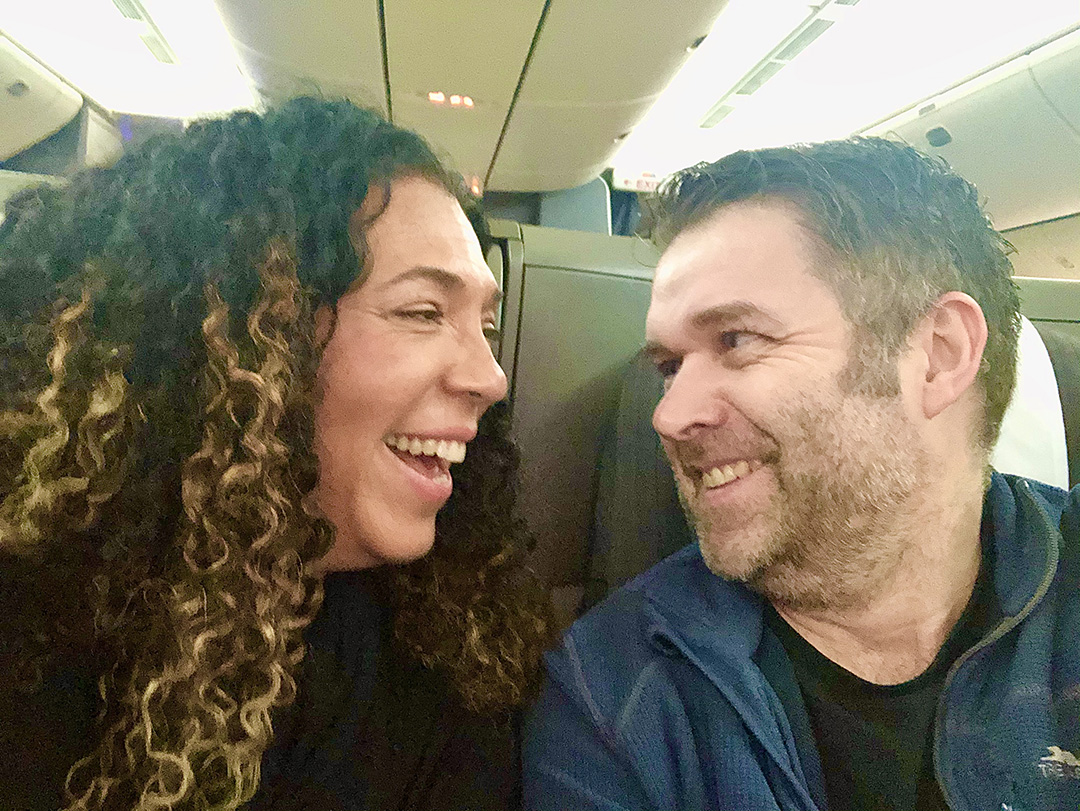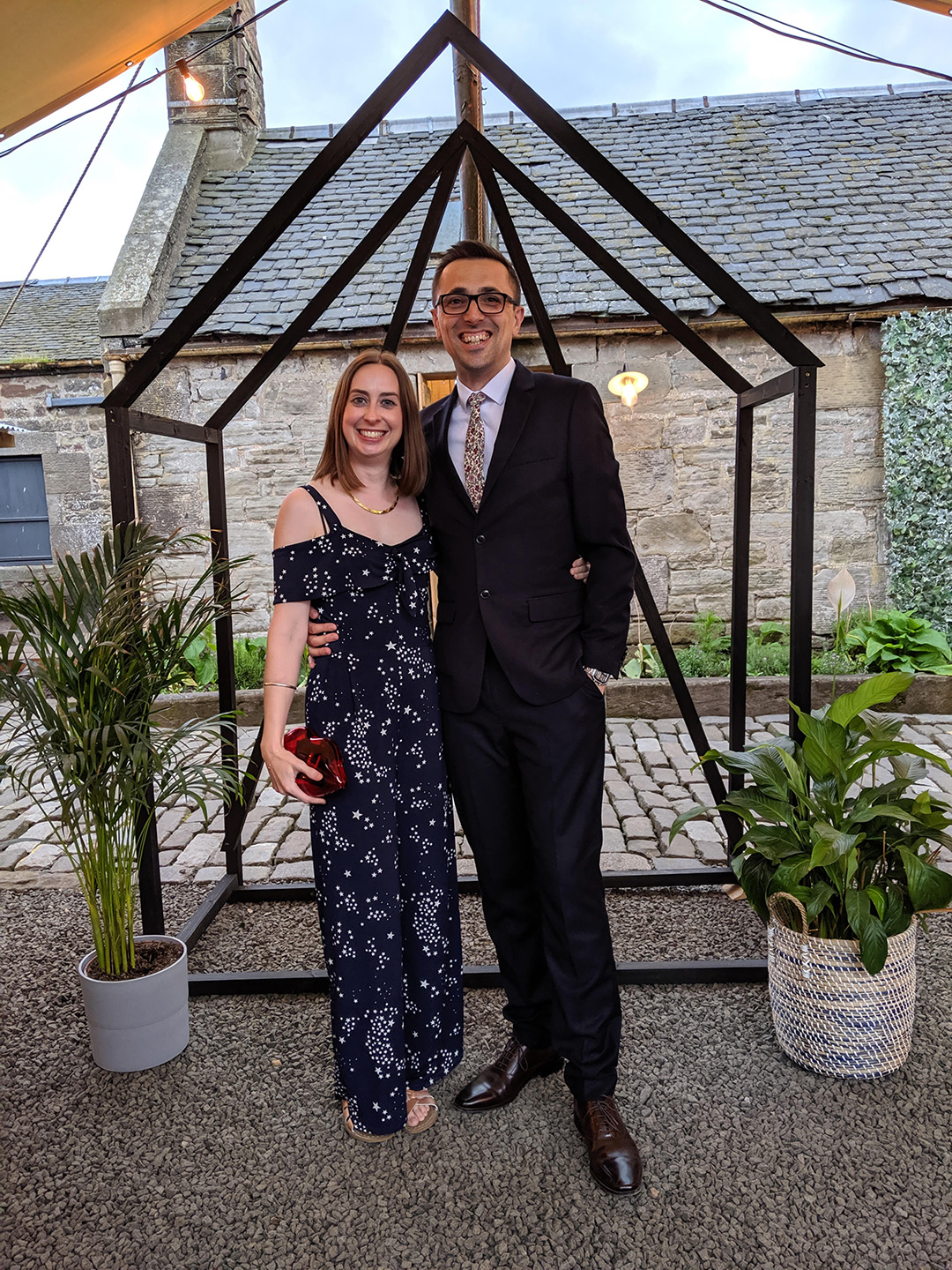Moving in together is a huge commitment. But it’s on a different scale to marriage or kids, because if it all goes wrong, you can just move out… right? Well, in fact, there are plenty of pitfalls to sharing a hoover, Ocado order and bank account, if you choose to get a joint bank account Link opens in a new window. And that’s true even if you’re only renting, because money isn’t just about pounds and pence. “It’s about emotions, our personalities, power, and how we grew up,” says Laura Whateley (pictured above), financial journalist and author of Money: A User’s Guide Link opens in a new window. “It’s the number one thing that comes up when people see relationship counsellors. At the very least, you should be able to be open about it.” Order a pizza, pour the wine and call the meeting to order: here’s the agenda.
Put your (literal) cards on the table

Franco Roselli, who runs Ricambio, a company specialising in Italian car parts, had been with his now-wife Michelle for two years before he confessed that he was in debt. “It wasn’t a huge amount - about £7,000, not £70,000 – but it was round my neck. While she was great with money, at the time I wasn’t. Some people would have walked away, but although she was shocked, she wasn’t judgemental, and she mentored me to get rid of my debt,” he recalls. “We don’t argue about money, even when we were struggling and living in a flat with young kids. We’re lucky I suppose.”
But to Laura, it isn’t luck, it’s their willingness to be open. “People find the subject of money particularly exposing, but if you don’t talk about it openly early on, it can snowball and become more difficult to discuss. As a relationship progresses, your finances become more and more enmeshed, and if later you have to be honest about your situation, it can come as a bit of a surprise. Try to be open minded. We all have different attitudes, there’s no right or wrong way.”
Fast doesn’t have to mean risky
Even if you don’t have a mortgage, from how you split the grocery bill to whether you invest in a knock-off Eames lounger, money looms large as soon as you move in together. And many are doing so sooner. “People are moving in together younger or more quickly because they feel financially compelled: it’s really expensive to afford a property on one salary now,” says Laura. And while the pandemic has made dating harder, in other ways it’s accelerated relationships, as couples become “households” so they can see each other in lockdown. “I’ve got a friend who met someone a few months ago and they’re fully living together now. They haven’t even been to a restaurant together, it’s just straight into domestic life - it’s very intense,” she adds.
One way to get off to a good start is to make a Living Together Agreement Link opens in a new window. Also known as a No-Nup, it can be done informally or with a solicitor, and covers how you’ll pay for the mortgage or rent, how you’ll split bills, how much you each earn and have in savings or debt, right down to what you’ll do with your possessions if you split up. “Some couples think they’re the least romantic thing ever, but it can prevent misunderstanding and resentment later on,” says Laura.
To join or not to join

It might seem the obvious thing to do once you have shared costs, but when you open a joint account, understand what you’re getting into. “Lots of people don’t realise that as soon as you have a joint bank account or a joint mortgage – any financial product you share – you’re both responsible for the debt. If your partner was to run up a big overdraft and they refused to pay it, you’d be held responsible,” warns Laura. “This is an issue that’s being talked about in the context of economic and financial abuse quite a lot.” Indeed, some couples get along perfectly fine without one. Sarah Fotheringham and Maninder Singh, who together run Safomasi, a textile design business based in India and the UK, have separate accounts.
“Maninder handles everything in India, and I pay most of our bills here,” says Sarah, but they don’t keep tallies. “When you have the same goal, you do what it takes to get there. At different times we’ve earned different amounts, but it’s always been equal if you think of it in terms of time and money.”

If you do open a joint account, there are different ways to run it: many choose to put in the same amount each month; some do it on a ratio if one’s a higher earner. Rarer is the radically honest method chosen by PR Karen Tippett and her producer-screenwriter husband Pearse Lehane. While their jobs are different, all their earnings go into a shared business account. “At the end of each month, I deduct all the bills, and then transfer equal sums into our personal accounts,” says Karen. “We’ve done things 50:50 and been very open - but what Pearse spends his allowance on is none of my business!”
How to protect yourself (and your partner) when you buy

Thinking of buying property together? Learn the legalese. “You could own it as ‘joint tenants’, where you own it equally, however much money you both put in - if you were to break up the property would be split down the middle,” says Laura. “Or you could own it as ‘tenants in common’, where you own different percentages, and you’d get it in those proportions if you were to split up.”
But that’s if you’re starting with a blank slate. When author and journalist Helen Whitaker and her now-husband Ian Pope, a programme manager, first moved in together, she owned the flat - so was effectively his landlord. “We agreed to use his savings (the equivalent of my deposit) to do a loft conversion, meaning we then both had the same financial investment in the flat. At that point I put him on the mortgage, and we’re now joint tenants,” says Helen. A side effect of that skewed beginning, however, can be an unequal burden of admin. “I was the point of contact for everything, like house insurance and bills,” something that once their son arrived, became, she laughs, “a slight sore point.” An hour spent putting bills in joint names will be time well spent.
Getting married makes things easier – but only up to a point

“If a married couple gets divorced, even if your name’s not on the house you’re entitled to some money. If you’re living together and not married, you don’t really have any rights – even if you have kids,” says Laura. Worse, “if one dies without a will, if only one of you has their name on the deeds, it could be that the other gets nothing. And if you own as tenants in common and your partner dies without a will, you won’t get any of their share.”
But marriage doesn’t automatically grant every legal right. “There’s often an assumption that if you’re married and your husband was to become too ill to manage his money, the bank won’t talk to you unless it’s a joint product.” For that, you need a Lasting Power of Attorney as well. “I set them up a few years ago, when a friend’s parents both got dementia very quickly,” says travel consultant Jane Tippen. “After seeing what a nightmare it was to get power of attorney once they’d got ill, I spoke to my mum and dad, and then also decided to set up a will and LPAs for us too. We did it over the phone and it was quite straightforward.” You don’t need a lawyer to do it, and it only costs £82 - just visit gov.uk/power-of-attorney Link opens in a new window to get started.

